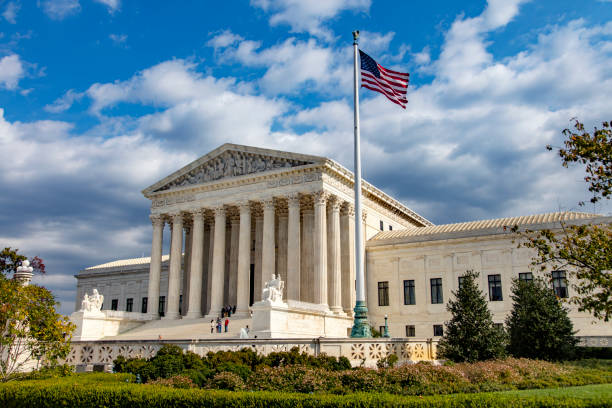The Power Has Shifted: How Might it Impact the Future of the Supreme Court?
The US Supreme Court building in Washington DC.
February 12, 2021
Since the death of Ruth Bader Ginsberg and the confirmation of Amy Coney Barrett, one topic of discussion has been what changes may happen to the Supreme Court now that Joe Biden is president. Some republicans questioned whether or not the Democratic party would try to “pack the court” if Biden won. Court packing refers to the idea of expanding the court. To simply put it, adding more seats to the Supreme Court in an effort to secure an ideological majority.
Within hours of the death of Ruth Bader Ginsburg on September 18, 2020, the minds of political activists started looking forward. With Coney Barret’s confirmation after Ginsburg’s death, the court would become decidedly conservative, with six conservative and three liberal justices. Whether or not then-candidate Biden would consider increasing the number of justices gained traction when Republicans quickly moved ahead with the confirmation of Judge Amy Coney Barrett after she was nominated by President Trump.
On February 13, 2016 Mitch McConnell said, “The American people should have a voice in the selection of their next Supreme Court Justice. Therefore, this vacancy should not be filled until we have a new President.” Many Democrats felt that this statement about the Supreme Court vacancy during Obama’s final term made McConnell a hypocrite for moving forward quickly with the nomination hearings of Coney Barrett when an election was less than two months away.
The Senate confirmed Coney Barrett by a vote of 52-48 on October 26, 2020. She is the fifth woman to serve on the Supreme Court of the United States. She previously was a United States circuit judge, and on the United States Court of Appeals for the Seventh Circuit from 2017 to 2020, also having been nominated by Trump.
This would not be the first time in history that changing the number of justices on the Supreme Court was considered. The Supreme Court of the United States is the highest federal court in the country and is the head of the judicial branch of government. Established by the U.S. Constitution, the Supreme Court has jurisdiction over all laws within the United States and is responsible for evaluating the constitutionality of those laws. The number of Supreme Court Justices is not fixed, and Congress can change it by passing an act that is then signed by the President, which it did for the first time in 1789. The Supreme Court has been nine justices for more than 150 years.
Due to Georgia’s US senate race, democrats now have a thin majority in the Senate, with Vice President Kamala Harris being the tie-breaking vote. Democrats control both houses of Congress, as well as the White House for the first time in 11 years. The next two years will be important because the Democratic party controls the legislative and executive branches of the government. With full control, the Democrats could technically change the number of Supreme Court Justices.
During the closing weeks of the presidential campaign, Biden was accused by some of dodging questions about expanding the number of seats on the Supreme Court. During a debate President Biden spoke on whether he would seek to increase the number of justices on the Supreme Court. “I would not get into court packing,” said Biden during a Democratic primary debate. “We add three justices. Next time around, we lose control, they add three justices. We begin to lose any credibility the court has at all.”
Joe Biden went the furthest on the issue when he said, “I’ve already spoken: I’m not a fan of court packing, but I don’t want to get off on that whole issue. I want to keep focused.” The Supreme Court is not planned to change anytime soon. With a new president in office and the change in power in the Senate, anything is possible, but with all of the challenges currently facing the new administration, and the fact that the Senate needs a 60-vote threshold to advance most legislation, it doesn’t seem like it will be a priority.

